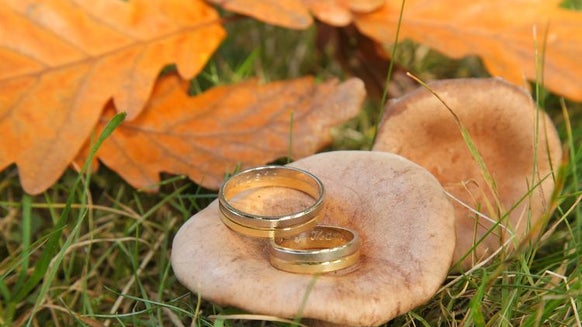How to Clean Your Dishwasher: Tried and Tested Methods

When was the last time you cleaned your dishwasher? If your answer is "never" or you can’t remember, don’t worry — you’re not alone! Most people assume that because the dishwasher cleans, it stays clean. But think about all the food bits, grease, and grime that swirl around during a cycle. Over time, that gunk can build up, leading to odours, greasy residue, and less-than-sparkling dishes.
The good news? Cleaning your dishwasher is easier than you think, and it doesn’t take much time at all. In this blog, I’m sharing five tested methods to get your dishwasher looking and smelling brand new. Whether you prefer an all-natural solution or a quick-and-easy tablet, there's a method that’ll work for you. Let’s get started!
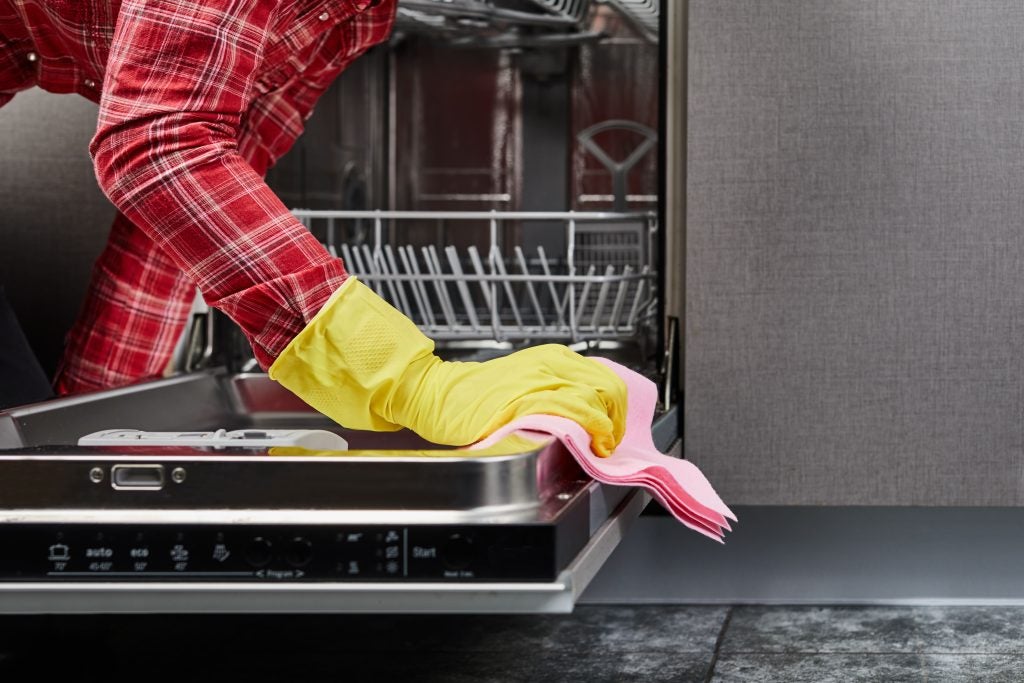
Why You Should Clean Your Dishwasher
It might seem strange to clean something that’s responsible for cleaning, but dishwashers are not immune to the buildup of food particles, grease, and even soap scum. This debris can clog up your machine’s filter and lead to some pretty unpleasant smells. Not only that, but a dirty dishwasher will also struggle to clean your dishes effectively — meaning you’ll end up with streaky glasses, spotty plates, and stuck-on food bits.
Regular cleaning keeps your dishwasher running smoothly and your dishes coming out spotless. Plus, it helps extend the life of your appliance by preventing limescale buildup and other wear-and-tear issues. So if you want to keep your machine (and your dishes) in tip-top shape, it’s worth giving your dishwasher a little TLC at least once a month!
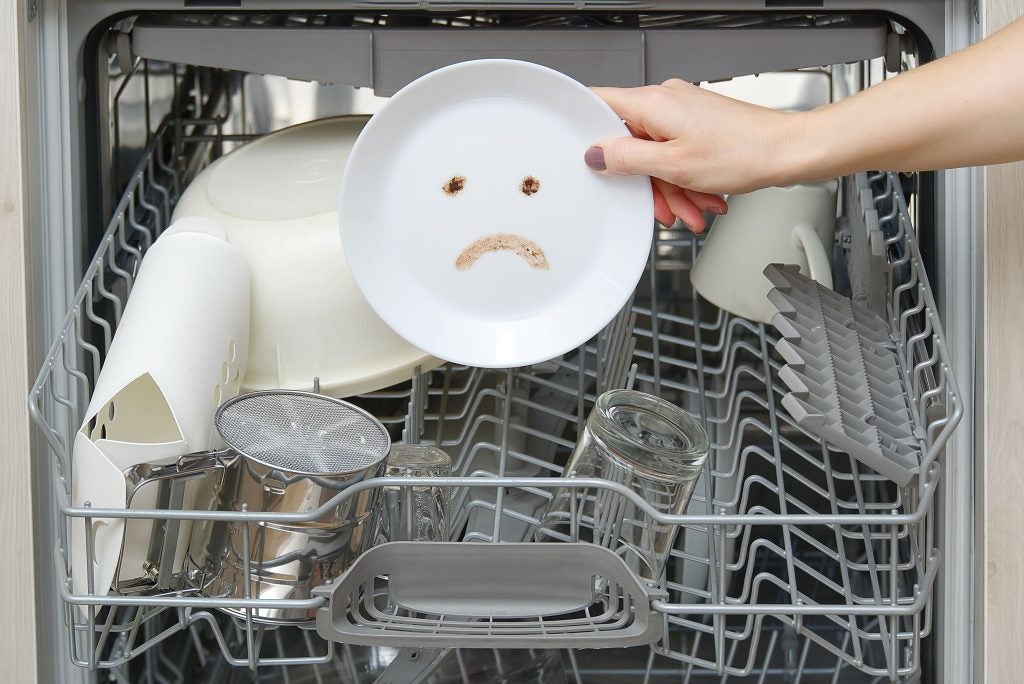
How We Tested the Dishwasher Cleaning Methods
To make sure we’re giving you the best cleaning advice, I didn’t just try these methods out on my own (I don’t even have a dishwasher, thanks to tiny apartment living!). Instead, five different people with dishwashers at home got to work, testing each method on their own machines. This way, we could see how these cleaning methods worked in various conditions and with different dishwasher models.
The popular methods we tested included: - Baking soda “bombs” (with hydrogen peroxide) - Baking soda alone - White vinegar - Citric acid - Dishwasher-cleaning tablets
We asked each tester to evaluate the methods based on several key questions: - How well did this method work? - How long did it take from start to finish, and how much was active cleaning time? - How easy (or hard) was the process? - What was left behind in the dishwasher after using this method? - Were there any unpleasant smells? - Would they recommend this method or use it again?
We also gave each method a score from 1 to 5 on ease of use, performance, and overall time taken, so you can easily see which ones are worth trying!

The Results – How the Methods Stacked Up
Mixing up a paste of baking soda and hydrogen peroxide and letting it dry overnight was pretty simple, but the results were underwhelming. While it helped freshen the dishwasher, it didn’t do much for stains or greasy residue. It’s an OK option if you’re just looking to eliminate odours, but not if you want a thorough clean.
Sprinkling a cup of baking soda into the dishwasher and running a hot water cycle was super easy and took almost no effort. It did a decent job of tackling stains after three rounds, but didn’t completely clean the filter or remove stubborn spots. This method works best if done regularly, but you might still need to scrub occasionally for tougher jobs.
White vinegar is a fantastic natural cleaner, but this method requires a bit more elbow grease. You’ll need to remove and clean some of the dishwasher parts, then run a cycle with vinegar. It takes a little longer but works very well, especially for deep cleaning. The smell of vinegar can be strong at first, but it completely disappears after the cycle finishes.
Citric acid was the superstar! This method was ridiculously easy — just pop some into the detergent cup, run a cycle, and voilà — a sparkling clean dishwasher with zero effort. It’s particularly great for dealing with hard water stains and limescale. Plus, it’s a natural solution, so you don’t have to worry about any harsh chemicals.
Dishwasher-cleaning tablets tied for the top spot with citric acid. These tablets are incredibly convenient — just pop one in the dishwasher and let it do the work. It’s a quick fix for removing build-up and odours, and they work just as well whether you’re cleaning with or without a full load of dishes. If you prefer a more hands-off approach, this is the way to go!
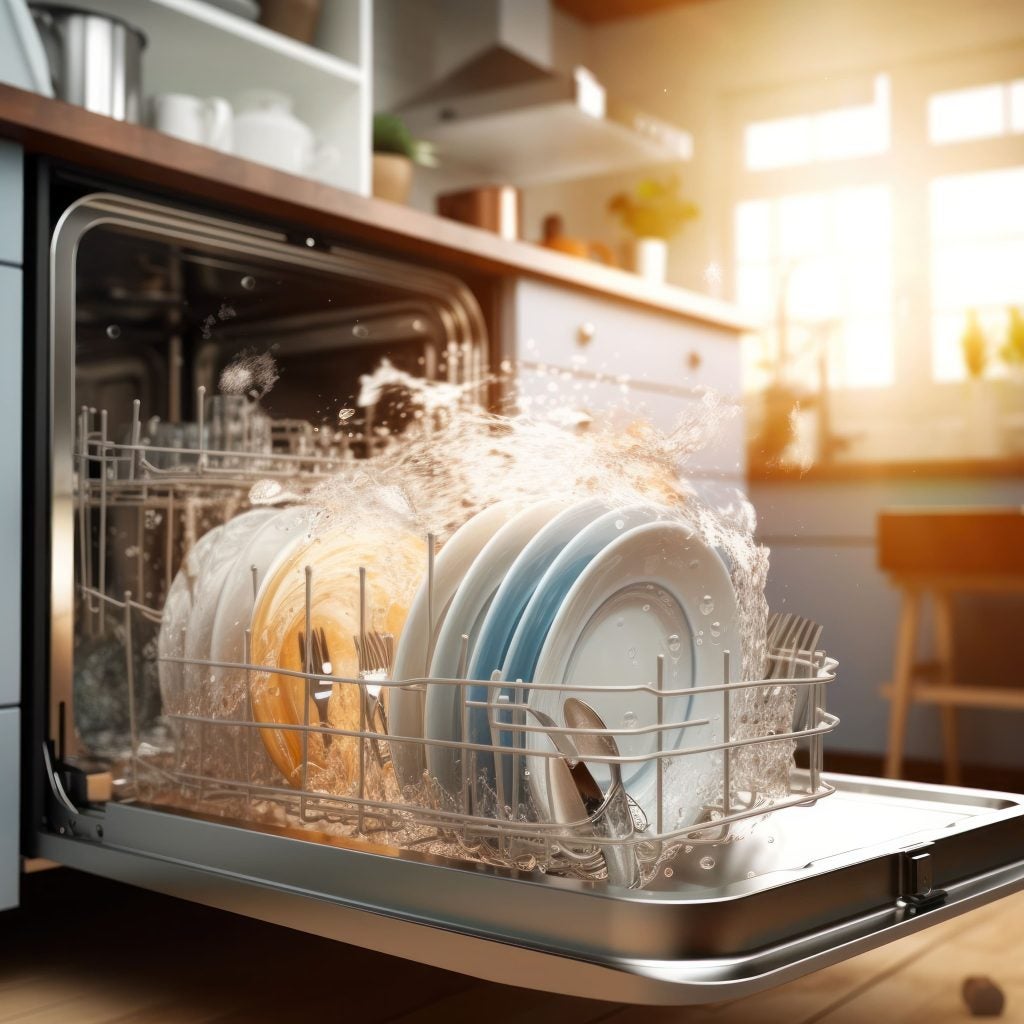
The Best Methods for Cleaning Your Dishwasher
So, which method should you use? It really depends on your needs!
- For regular maintenance: Citric acid is a top-notch solution if you want an all-natural cleaner that’s easy to use and works wonders on limescale and water stains. Just add it to your weekly routine and your dishwasher will stay fresh and clean.
- For deep cleaning: If your dishwasher needs a thorough scrub down, white vinegar is your go-to. It requires a bit more effort, but it’s excellent for removing odours and cleaning the parts that are often overlooked.
- For convenience: If you prefer a no-fuss, no-mess solution, you can’t go wrong with dishwasher-cleaning tablets. They do all the work for you, and you can even use them while you’re running a load of dishes!
The key takeaway? A clean dishwasher means cleaner, shinier dishes. Whether you go for a natural option like citric acid or a ready-made tablet, keeping your machine in top condition doesn’t have to be complicated or time-consuming. Happy cleaning!
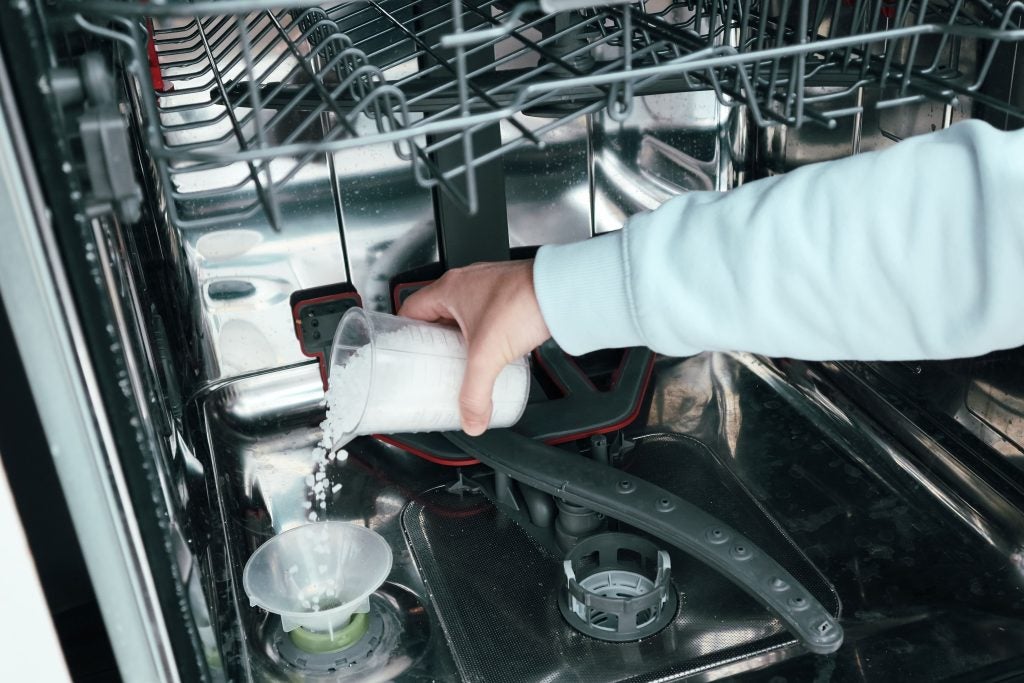
Which Method is Best for You?
With four methods tested and rated, you might be wondering which one fits your needs best. Each method has its advantages, so here's a quick guide to help you decide based on your cleaning goals and preferences.
Citric Acid: If you’re eco-conscious and want a natural cleaning solution, citric acid is your best bet. It’s also highly effective for tackling hard water stains, leaving your dishwasher looking brand new. Citric acid is versatile, non-toxic, and cost-effective, making it perfect for regular maintenance.
Tablets: Need a hassle-free, ready-to-use option? Dishwasher-cleaning tablets are the way to go. With minimal effort (literally just popping a tablet in), they offer a quick and thorough cleaning. This method is perfect for busy households or anyone who wants a convenient, no-fuss solution.
Baking Soda: For light cleaning and deodorising, baking soda is an excellent option. It’s ideal if your dishwasher just needs a refresh and doesn’t have any tough stains or grime buildup. Plus, it’s gentle and safe for the environment, making it a handy solution in a pinch.
Vinegar: Vinegar is great for deeper cleaning sessions, especially when dealing with stubborn grime or food particles. However, it requires more effort, and due to its acidic nature, it’s best used sparingly to avoid long-term damage to the appliance. It’s ideal for occasional deep cleans when your dishwasher needs a more thorough refresh.

Final Thoughts – Keeping Your Dishwasher Sparkling Clean
At the end of the day, a clean dishwasher is key to getting spotless dishes. Whether you’re using the powerful cleaning punch of citric acid, the convenience of tablets, or the eco-friendly touch of vinegar, keeping your dishwasher clean doesn’t have to be a chore.
With the right methods and a little regular maintenance, your dishwasher will not only look better, but it’ll work better, too. You’ll notice the difference in how your dishes come out – cleaner, shinier, and fresher than ever.
So, next time you run your dishwasher, remember it deserves a little TLC too! Happy cleaning, and enjoy the sparkle of your beautifully clean machine!



